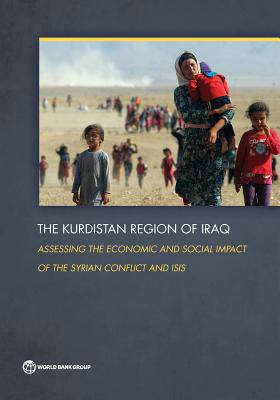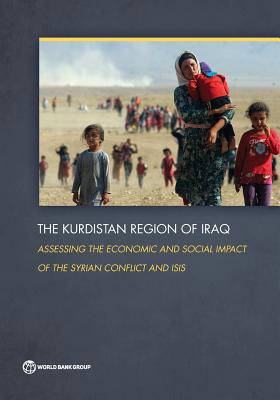
- Afhalen na 1 uur in een winkel met voorraad
- Gratis thuislevering in België vanaf € 30
- Ruim aanbod met 7 miljoen producten
- Afhalen na 1 uur in een winkel met voorraad
- Gratis thuislevering in België vanaf € 30
- Ruim aanbod met 7 miljoen producten
Zoeken
The Kurdistan Region of Iraq
Assessing the Economic and Social Impact of the Syrian Conflict and Isis
World Bank World Bank
Paperback | Engels
€ 50,95
+ 101 punten
Omschrijving
The Kurdistan region of Iraq is facing an economic and humanitarian crisis as a result of the influx of Syrian refugees which began in 2012 and internally displaced persons (IDPs) in 2014. The region's population increased by 28 percent over a short period, placing strains on the local economy, host community, and access to public services. This book provides national and regional policy makers with a technical assessment of the impact and stabilization costs needed for 2015 associated with the influx of refugees and IDPs. The stabilization cost for 2015 is estimated at US$1.4 billion in additional spending above and beyond the region's budget. This estimate could significantly increase should the crisis persist longer. The study highlights how prices and unemployment have increased, and refugees and IDPs entering the labor market are pushing wages down. A surge in violence led to supply side shocks. The ISIS crisis has had a significant effect on trade of goods and services. Transportation routes were disrupted. Foreign direct investment flows have declined and operations of foreign enterprises have been adversely affected. Disruption of public investment projects have had a negative impact on the economy. Based on the World Bank estimates, economic growth contracted by 5 percentage points in the region and the poverty rate more than doubled, rising from 3.5 percent to 8.1 percent. While the government has been responsive to addressing the needs of the displaced population up until now, more resources are needed to avert this humanitarian crisis and address the needs of the displaced population in the medium- and long-term. The report is an outcome of close collaboration between a wide spectrum of World Bank experts and regional government institutions and international partners.
Specificaties
Betrokkenen
- Auteur(s):
- Uitgeverij:
Inhoud
- Aantal bladzijden:
- 190
- Taal:
- Engels
Eigenschappen
- Productcode (EAN):
- 9781464805486
- Verschijningsdatum:
- 20/04/2015
- Uitvoering:
- Paperback
- Formaat:
- Trade paperback (VS)
- Afmetingen:
- 178 mm x 254 mm
- Gewicht:
- 340 g

Alleen bij Standaard Boekhandel
+ 101 punten op je klantenkaart van Standaard Boekhandel
Beoordelingen
We publiceren alleen reviews die voldoen aan de voorwaarden voor reviews. Bekijk onze voorwaarden voor reviews.








